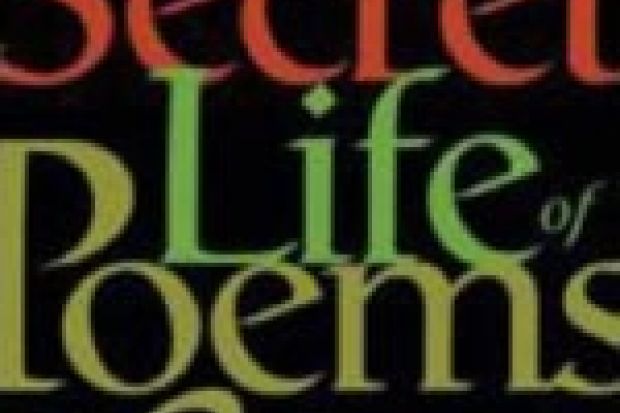Even as a critic, Tom Paulin can be surreal. Discussing Donne's Nocturnall Upon St Lucie's Day he says that "the sun has ejaculated", and in his analysis of Swift's Description of a City Shower he describes the sky "vomiting rain like pigswill".
Paulin's compelling new book, The Secret Life of Poems, is subtitled A Poetry Primer, and it functions as a guide to his distinctive, some would say idiosyncratic, way of reading. What makes it so unusual is that Paulin is acutely aware of the manner in which words stow away inside other words ("ail" and "fail", for instance, reside within "frail" in Larkin's Cut Grass); likewise images act as vehicles for other images (according to Paulin, the robin redbreast in Keats's To Autumn "carries somewhere the idea of blood, of redcoat soldiers", while the fern in Robert Frost's A Servant to Servants "brings pubic hair somewhere into the image"). Poems also bear the imprint of earlier poems (Larkin is "present" in Craig Raine's Flying to Belfast; Shakespeare and Tennyson stand behind Louis MacNeice's Order to View).
Elements of this approach are a commonplace of conventional literary criticism; what distinguishes Paulin is the tangibility of language in his hands. He writes of metre and sound as solid things, describing the molossus (three consecutive stresses in a line) as "tactile, indisputable, a hard fact of experience, which is both material and poignant, like tears hitting and biting".
This aspect of Paulin's writing is persuasive, perhaps because he writes as a practitioner, reading others' work with the same selflessness he brings to his own. His arguments have bottom even when he tests our credulity, as when he argues that one of Hopkins's sonnets is "a hectic apocalyptic poem"; that the wolves in Wordsworth's Prelude anticipate Napoleon's Russian campaign; that Keith Douglas's Canoe foresees its author's death; or makes claims for "the essentially redemptive nature of poetic rhythm". These propositions take credit from the close, detailed attention Paulin gives the poems' sound and sense, so that it is hard to fault the argument even when it seems to challenge logic.
I'm acknowledged at the end of this book, probably because I've organised conferences at which Paulin has delivered versions of the chapter on To Autumn, which we have discussed. I remember watching spellbound once as someone effed and blinded her way out of that lecture, incensed by Paulin's political interpretation of what many regard as a work that stands in an ideologically neutral context. Published here, Paulin's analysis of Keats's great poem concludes with the typically generous acknowledgement: "It may seem controversial to suggest that beyond being a highly and subtly allusive writer, Keats was also capable of writing coded political poems."
Despite such admissions, Paulin is uncompromising in his conviction that, as he puts it, "writing is a social act, not simply a private commitment". For him, the context in which poems are composed is a fundamental, whether it be the proximity of madness to the work of Robert Lowell, or the Troubles to that of Derek Mahon. To him, history is an indispensable tool by which the reader throws light on a poem's secret (or hidden) life.
Doubtless there are some who will object to being told that To Autumn is about the Peterloo Massacre, just as others will take issue with the view that the card-playing passage in Wordsworth's Prelude reinscribes Milton's comments on the English Revolution. Paulin is controversial, provoking and even, at times, irritating. I would be surprised if any reader managed to get through this book without taking issue with its author at some point (I think he's too hard on the conclusion of Thomas Hardy's The Self-Unseeing, which works better than he allows, and question whether Coleridge ever thought Robert Emmet a hero, as he suggests). But that seems to me to be the point. Good criticism, if it has any purpose, exists not to flatter our assumptions but to question our understanding of what any given work is "about". If so, The Secret Life of Poems is more than a primer; it is, more correctly, a manifesto for a way of thinking and feeling about great art.
Duncan Wu is professor in the English department at Georgetown University, US
The Secret Life of Poems: A Poetry Primer
By Tom Paulin
Faber
320pp
£17.99
ISBN 9780571226344
Published 17 January 2008
Register to continue
Why register?
- Registration is free and only takes a moment
- Once registered, you can read 3 articles a month
- Sign up for our newsletter
Subscribe
Or subscribe for unlimited access to:
- Unlimited access to news, views, insights & reviews
- Digital editions
- Digital access to THE’s university and college rankings analysis
Already registered or a current subscriber?




